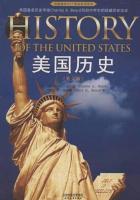
第7章 THE COLONIAL PERIOD(6)
As the proportion of the negroes to the free white population steadily rose,and as whole sections were overrun with slaves and slave traders,the Southern colonies grew alarmed.In 1710,Virginia sought to curtail the importation by placing a duty of £5 on each slave.This effort was futile,for the royal governor promptly vetoed it.From time to time similar bills were passed,only to meet with royal disapproval.South Carolina,in 1760,absolutely prohibited importation;but the measure was killed by the British crown.As late as 1772,Virginia,not daunted by a century of rebuffs,sent to George III a petition in this vein:"The importation of slaves into the colonies from the coast of Africa hath long been considered as a trade of great inhumanity and under its present encouragement,we have too much reason to fear,will endanger the very existence of Your Majesty's American dominions....Deeply impressed with these sentiments,we most humbly beseech Your Majesty to remove all those restraints on Your Majesty's governors of this colony which inhibit their assenting to such laws as might check so very pernicious a commerce."
All such protests were without avail.The negro population grew by leaps and bounds,until on the eve of the Revolution it amounted to more than half a million.In five states-Maryland,Virginia,the two Carolinas,and Georgia-the slaves nearly equalled or actually exceeded the whites in number.In South Carolina they formed almost two-thirds of the population.Even in the Middle colonies of Delaware and Pennsylvania about one-fifth of the inhabitants were from Africa.To the North,the proportion of slaves steadily diminished although chattel servitude was on the same legal footing as in the South.In New York approximately one in six and in New England one in fifty were negroes,including a few freedmen.
The climate,the soil,the commerce,and the industry of the North were all unfavorable to the growth of a servile population.Still,slavery,though sectional,was a part of the national system of economy.Northern ships carried slaves to the Southern colonies and the produce of the plantations to Europe."If the Northern states will consult their interest,they will not oppose the increase in slaves which will increase the commodities of which they will become the carriers,"said John Rutledge,of South Carolina,in the convention which framed the Constitution of the United States."What enriches a part enriches the whole and the states are the best judges of their particular interest,"responded Oliver Ellsworth,the distinguished spokesman of Connecticut.
QUESTIONS
1.America has been called a nation of immigrants.Explain why.
2.Why were individuals unable to go alone to America in the beginning?What agencies made colonization possible?Discuss each of them.
3.Make a table of the colonies,showing the methods employed in their settlement.
4.Why were capital and leadership so very important in early colonization?
5.What is meant by the "melting pot"?What nationalities were represented among the early colonists?
6.Compare the way immigrants come to-day with the way they came in colonial times.
7.Contrast indentured servitude with slavery and serfdom.
8.Account for the anxiety of companies and proprietors to secure colonists.
9.What forces favored the heavy importation of slaves?
10.In what way did the North derive advantages from slavery?
COLONIAL AGRICULTURE,INDUSTRY,AND COMMERCEThe Land and the Westward MovementThe Significance of Land Tenure.-The way in which land may be acquired,held,divided among heirs,and bought and sold exercises a deep influence on the life and culture of a people.The feudal and aristocratic societies of Europe were founded on a system of landlordism which was characterized by two dis-tinct features.In the first place,the land was nearly all held in great estates,each owned by a single proprietor.In the second place,every estate was kept in-tact under the law of primogeniture,which at the death of a lord transferred all his landed property to his eldest son.This prevented the subdivision of estates and the growth of a large body of small farmers or freeholders owning their own land.It made a form of tenantry or servitude inevitable for the mass of those who labored on the land.It also enabled the landlords to maintain themselves in power as a governing class and kept the tenants and laborers subject to their economic and political control.If land tenure was so significant in Europe,it was equally important in the development of America,where practically all the first immigrants were forced by circumstances to derive their livelihood from the soil.
Experiments in Common Tillage.-In the New World,with its broad ex-tent of land awaiting the white man's plow,it was impossible to introduce in its entirety and over the whole area the system of lords and tenants that existed across the sea.So it happened that almost every kind of experiment in land tenure,from communism to feudalism,was tried.In the early days of the Jame-stown colony,the land,though owned by the London Company,was tilled in common by the settlers.No man had a separate plot of his own.The motto of the community was:"Labor and share alike."All were supposed to work in the fields and receive an equal share of the produce.At Plymouth,the Pilgrims at-tempted a similar experiment,laying out the fields in common and distributing the joint produce of their labor with rough equality among the workers.